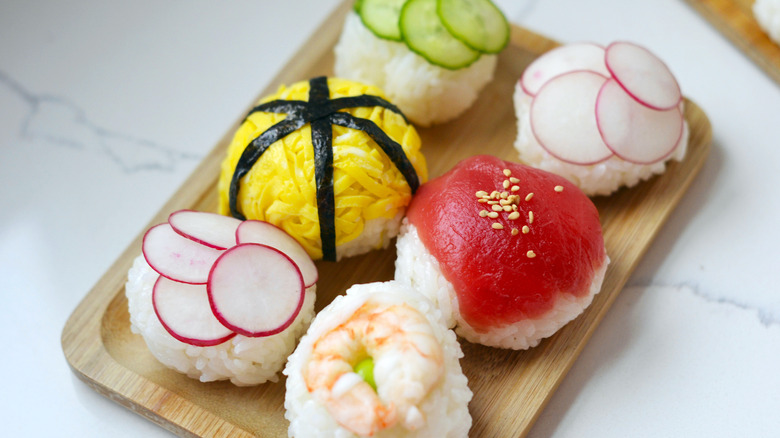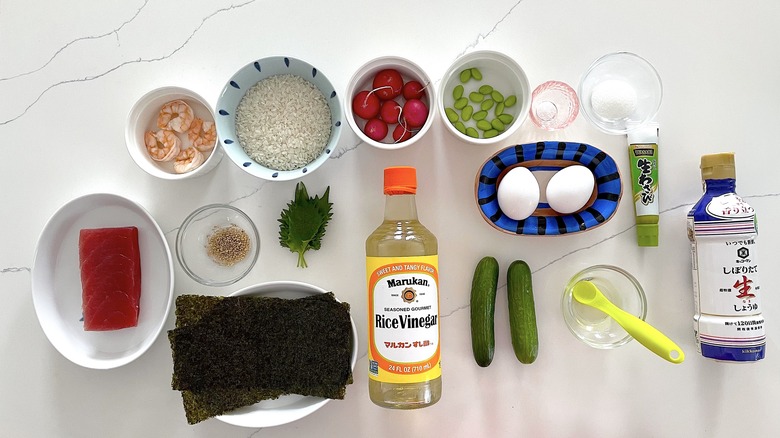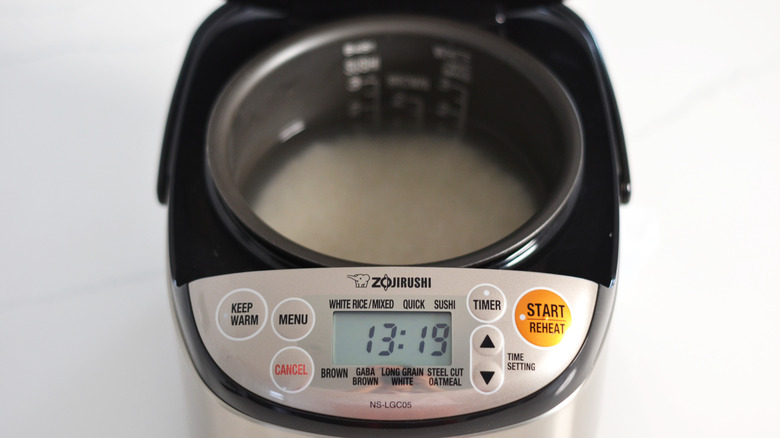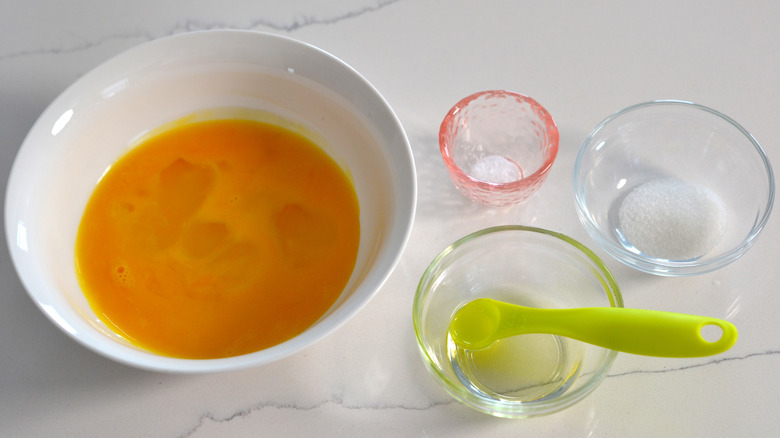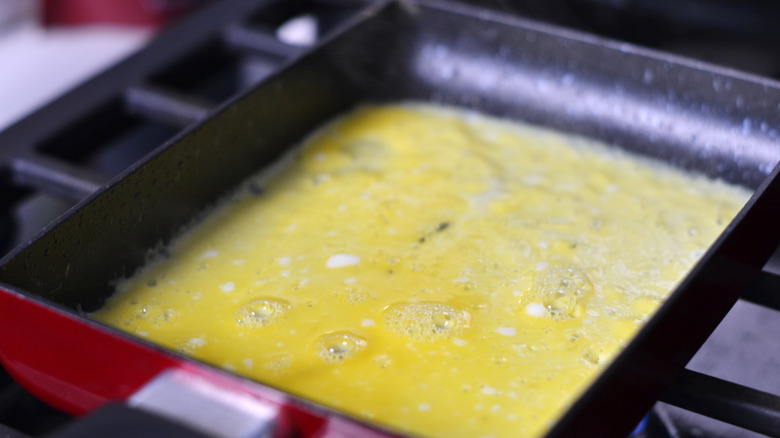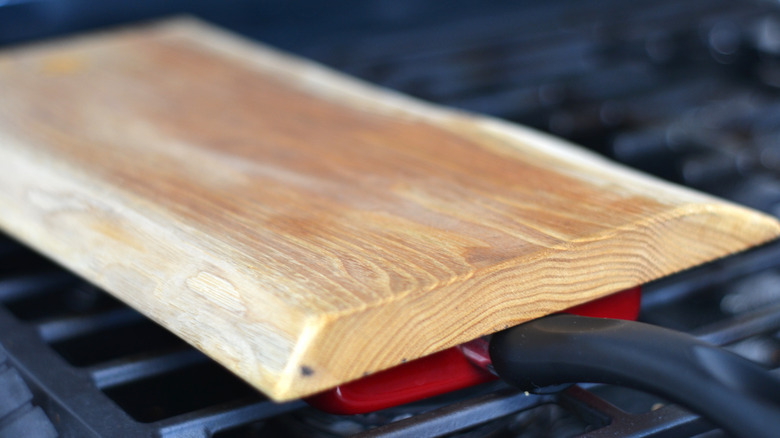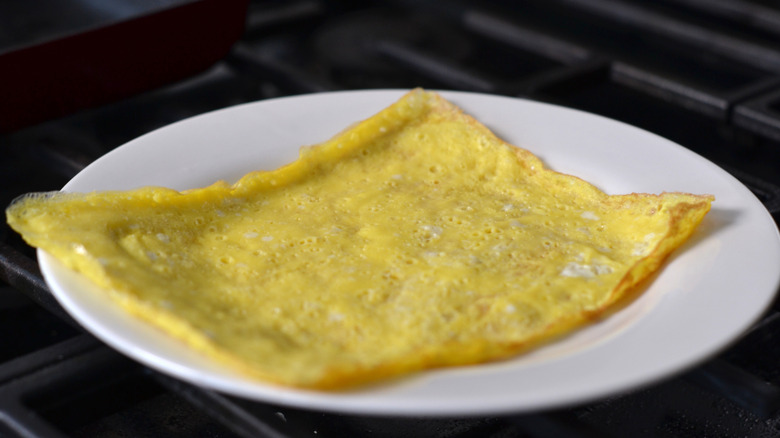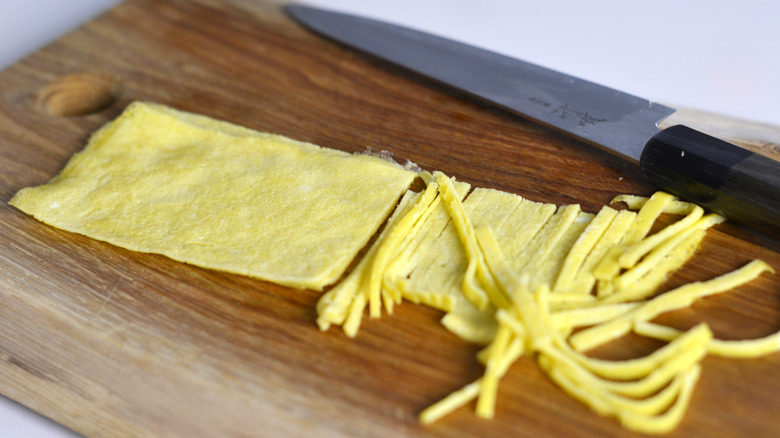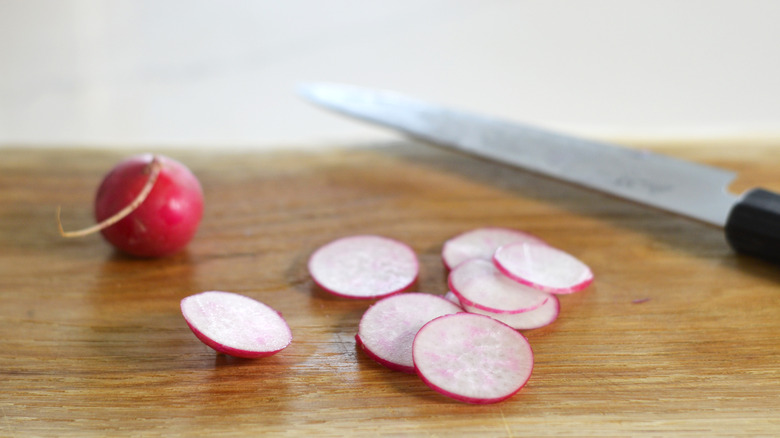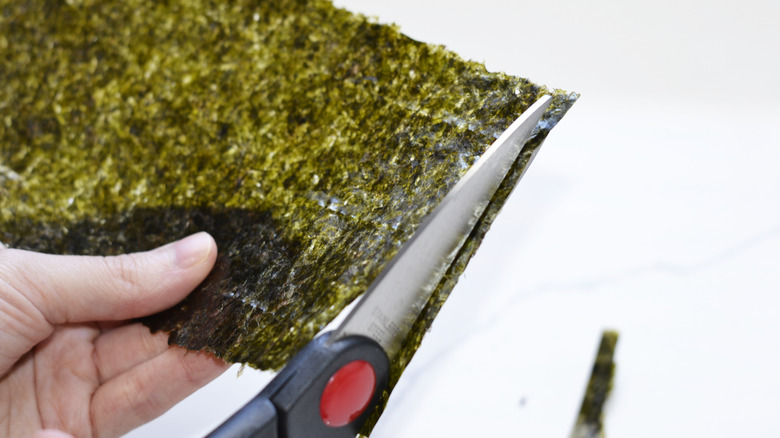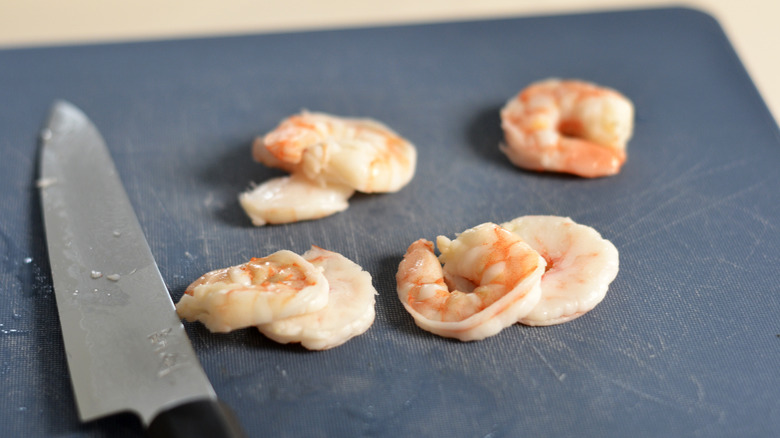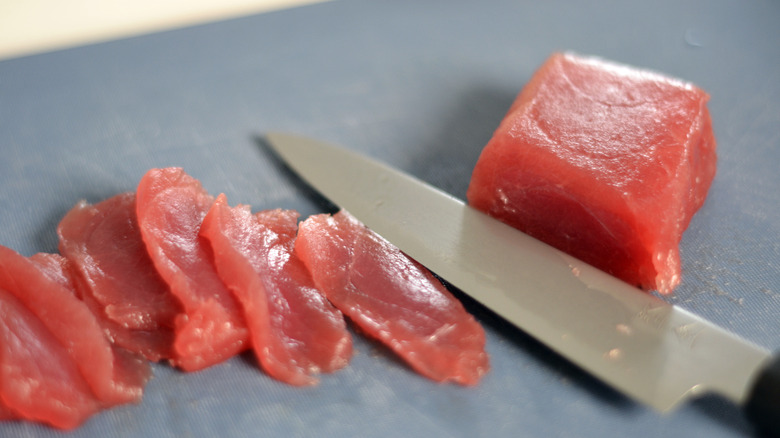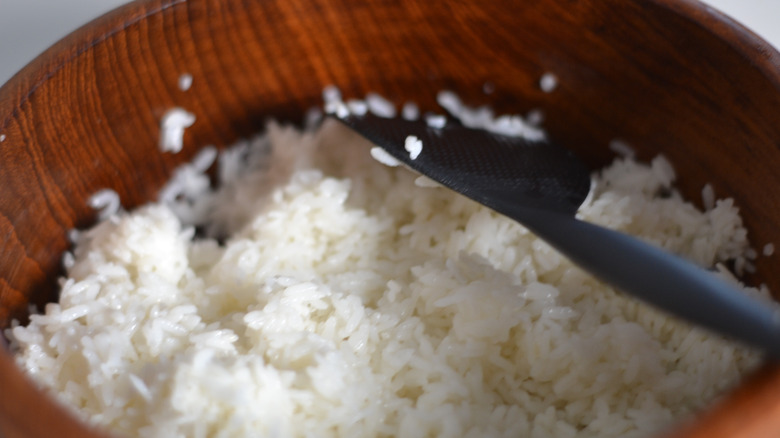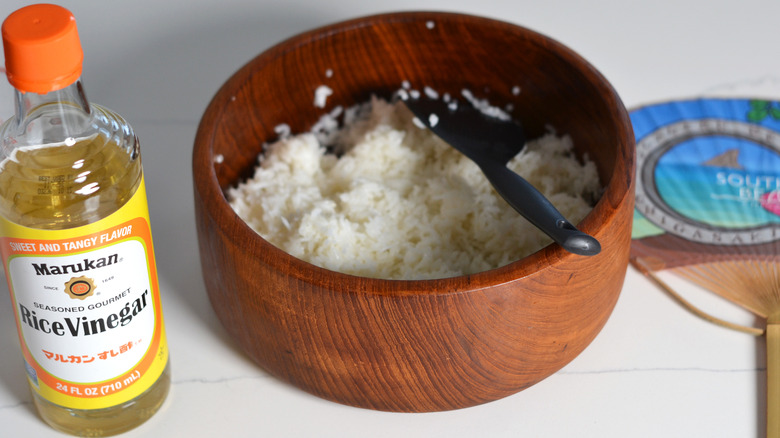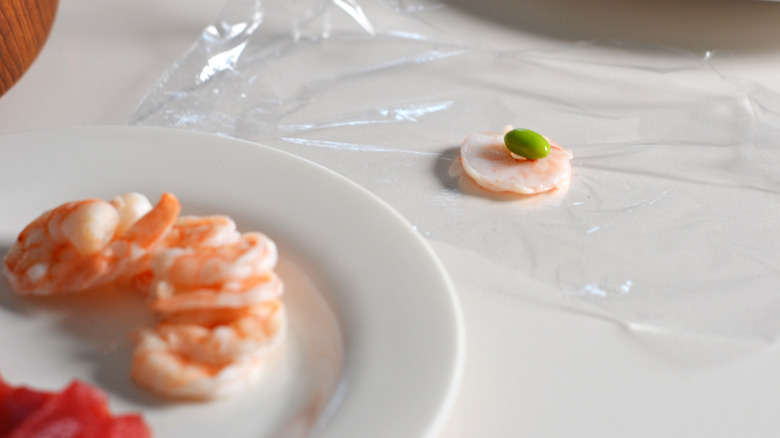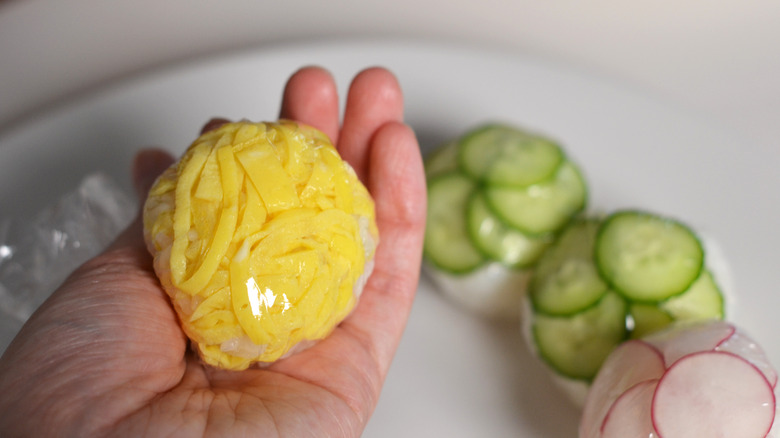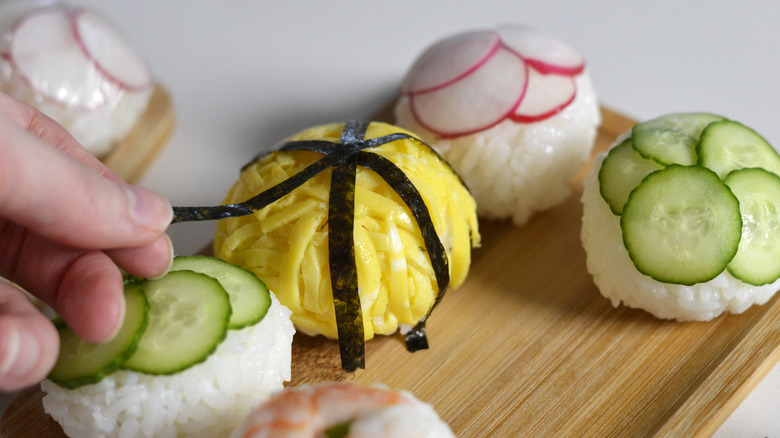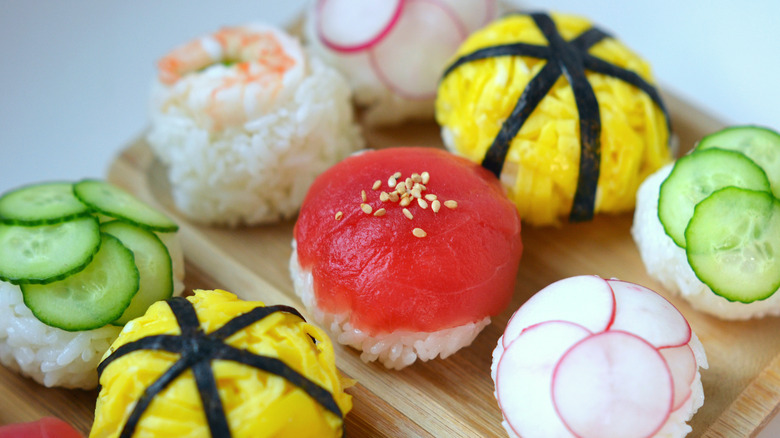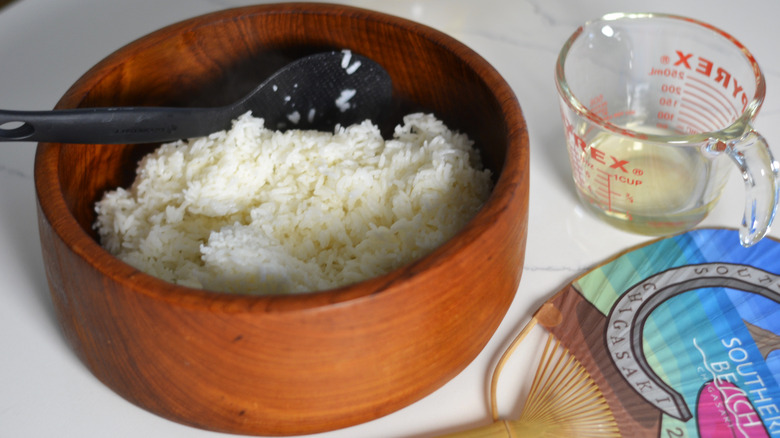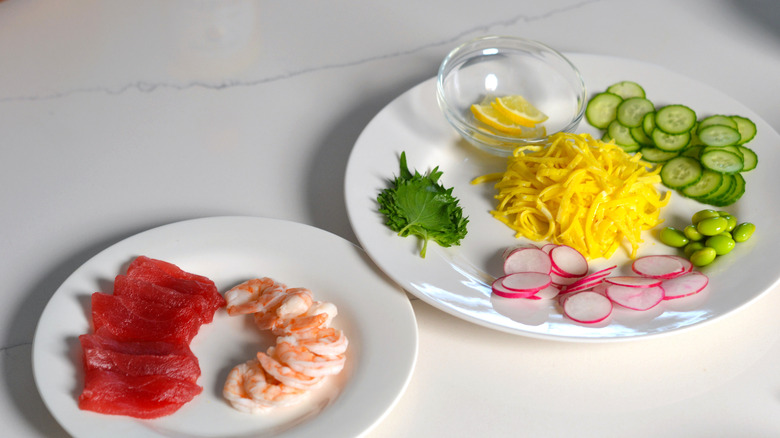Temarizushi (Decorative Sushi Balls) Recipe
Colorful and cute, temarizushi (temari sushi) is a type of nigiri sushi with a charming appearance. While it may look complicated, this festive sushi can be made casually at home. Simply take a plump sphere of sushi rice — perfumed with tangy rice vinegar — and decorate it with toppings of a variety of textures, shapes, and colors. Much like the communal takoyaki party, making temarizushi can be a fun group activity. Make it BYO-toppings and see what wildcards appear in the kitchen!
This recipe by Rika Hoffman serves as more of a guideline than a strict set of instructions. So, free yourself of the constraints of what sushi should be. Embrace the cheerful, the imperfect, wonky, and asymmetrical. Go off-script and combine some unlikely elements (imagine a lox bagel–inspired smoked salmon and cream cheese combo); even Japanese conveyor belt sushi chains are doing it (looking at you, miniature hamburg steak sushi).
Temarizushi is often associated with Hinamatsuri, also known as Girl's Day or Doll's Day in Japan, celebrated annually on March 3. This festive sushi gets its name from the Japanese folk toy temari (literally "hand ball"). Picture an intricately embroidered hacky sack (though these days, temari don't see much action and serve mainly ornamental purposes). Popularized in Kyoto, temarizushi is sometimes called "Kyo sushi." However, the exact origins of temarizushi are unknown.
Gather the temarizushi ingredients
First, assemble your ingredients. To prepare the sushi rice, you'll need Japanese short-grain white rice and seasoned rice vinegar. Make sure to use seasoned rice vinegar, which contains sugar and salt.
Besides the seasoned sushi rice, temarizushi can be made with your choice of ingredients. This recipe details how to make kinshi tamago (thin strips of egg) — a common component of sushi dishes such as temarizushi and chirashizushi ("scattered sushi"). All you'll need is sugar, salt, eggs, and a little oil for cooking.
We also use boiled shrimp, high-quality tuna (make sure it is safe for raw consumption), cherry belle radishes, cucumber, and edamame as toppings. For garnishes, toasted sesame seeds, shiso, and lemon are great for additional flavor and texture. To serve, you'll want to have wasabi and soy sauce handy.
Step 1: Cook the rice
Cook the short-grain white rice using your preferred method, either rice cooker or stovetop.
Step 2: Combine the usuyaki tamago ingredients
To make the usuyaki tamago (thin egg crepe), mix 2 eggs, 2 pinches of salt, and ½ teaspoon of sugar.
Step 3: Start to cook the egg
Heat a frying pan on medium-low heat. Coat with oil and add just enough egg to cover the bottom of the frying pan.
Step 4: Cook the egg using residual heat
When the egg starts to set around the edges and in the center, turn off the heat and cover the pan for 2 minutes.
Step 5: Cool the usuyaki tamago
Transfer the sheet of egg to a plate to cool, and repeat the cooking process with the remaining egg mixture.
Step 6: Julienne the egg into strips
Julienne the usuyaki tamago into strips about ⅛ inch wide (called kinshi tamago).
Step 7: Slice the vegetables
Slice the cucumber and radish into thin rounds using a mandolin or sharp knife.
Step 8: Cut the nori
Cut the nori into thin strips.
Step 9: Cut the shrimp
Slice the boiled shrimp in half down the spine so that both of the halves are mirror images.
Step 10: Slice the tuna
Slice the fresh tuna and set aside.
Step 11: Combine the sushi rice ingredients
Place the warm, cooked rice into a large bowl and add seasoned rice vinegar, to taste (about ¼ to ⅓ cup).
Step 12: Mix and cool the sushi rice
Fold in the vinegar with a shamoji (rice paddle) or spatula while fanning the rice to help cool it down. It helps to have one person fan the rice while the other person mixes.
Step 13: Arrange the sushi toppings
Lay out a piece of plastic wrap and arrange one of the topping ingredients in a layer — this will be the top of the sushi.
Step 14: Shape the temarizushi
Place a mound of rice over the topping and wrap the plastic wrap around it, twisting the ends of the wrap to shape the temarizushi into a round ball.
Step 15: Garnish
Unwrap the temarizushi and add a garnish, such as lemon slices for boiled shrimp, sesame seeds or julienned shiso on tuna, or strips of nori encircling the egg.
Step 16: Serve
Repeat with the remaining ingredients, then serve the temarizushi with wasabi and soy sauce, if desired.
How do you cook perfect sushi rice?
One of the main points to remember is that sushi rice is cooked using less water than plain Japanese white rice. This ensures that the rice is able to absorb the seasoned rice vinegar without getting soggy.
To make perfect sushi rice, you'll start with uncooked Japanese short-grain rice. Just as you would when preparing plain Japanese white rice, wash and drain the rice 3 times, and then let it soak for about 30 minutes before cooking. Some rice cookers have markings that show the amount of water required to cook different types of rice, such as brown, white, or sushi rice. If your rice cooker doesn't have these markings, just use a 1:1 ratio of water to rice by volume.
The second tip for perfect sushi rice involves a bit of elbow grease and dexterity (or another set of hands). Using a handheld fan, you'll want to quickly cool down the hot rice while simultaneously mixing in the seasoned rice vinegar. The rapid cooling yields beautiful, glossy sushi rice. As for the mixing technique, you'll want to use a gentle cutting and folding motion with the shamoji (rice paddle) so as not to crush the rice grains.
What toppings can you use for temarizushi?
The temarizushi topping possibilities are endless, and it can easily be vegan or vegetarian –- just focus on veggies like avocado, carrot, okra, or lotus root. If you're in the mood for seafood, experiment with raw or cooked fish, roe, uni, or scallops. Wary of uncooked fish? Try imitation crab, smoked salmon, prosciutto, or ham. Garnishes like chives or scallions, zested or thinly sliced citrus fruit, and microgreens add additional color, crunch, and flavor.
Once you've selected your ingredients, play around with presentation and layering. Cucumber can be sliced into thin rounds or shaved into long strips that are woven together like a lattice pie crust. Instead of cutting the usuyaki tamago (sheet of egg) into kinshi tamago (thin strips of egg), why not use a larger piece to envelope the entire ball of sushi rice? Try different combinations of ingredients, keeping pattern, texture, and color in mind — think of the dish as edible art.
Temarizushi (Decorative Sushi Balls) Recipe
This easily constructed, decorative sushi dish can be customized with all manner of toppings, making it perfect for a build-your-own activity with a group.
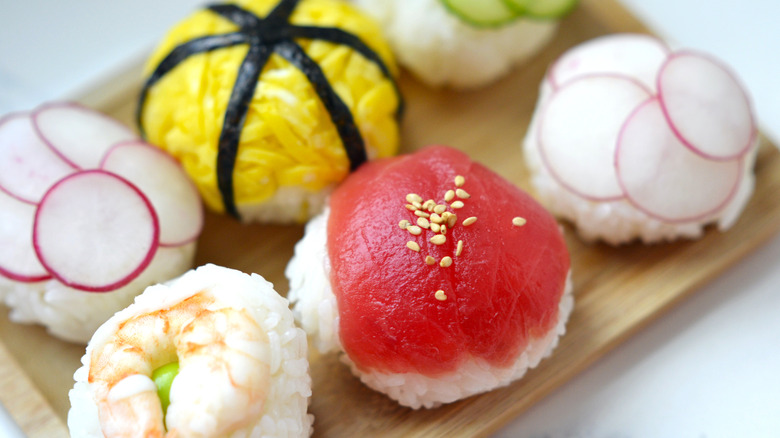
Ingredients
- 1 ½ cups uncooked Japanese short-grain white rice (2 rice cooker cups)
- 2 large eggs
- 2 pinches salt
- ½ teaspoon sugar
- 1 teaspoon canola oil
- 4 boiled shrimp, shelled and tail off
- 8 ounces raw, high-quality tuna
- 3 cherry belle radishes
- 1 cucumber (Japanese or Persian)
- 1 sheet of nori
- ⅓ cup seasoned rice vinegar, or to taste
- ¼ cup edamame, boiled and shelled
Optional Ingredients
- ¼ teaspoon toasted sesame seeds, for garnish
- Shiso leaves, for garnish
- Lemon slices, for garnish
- Wasabi, for serving
- Soy sauce, for serving
Directions
- Cook the short-grain white rice using your preferred method, either rice cooker or stovetop.
- To make the usuyaki tamago (thin egg crepe), mix 2 eggs, 2 pinches of salt, and ½ teaspoon of sugar.
- Heat a frying pan on medium-low heat. Coat with oil and add just enough egg to cover the bottom of the frying pan.
- When the egg starts to set around the edges and in the center, turn off the heat and cover the pan for 2 minutes.
- Transfer the sheet of egg to a plate to cool, and repeat the cooking process with the remaining egg mixture.
- Julienne the usuyaki tamago into strips about ⅛ inch wide (called kinshi tamago).
- Slice the cucumber and radish into thin rounds using a mandolin or sharp knife.
- Cut the nori into thin strips.
- Slice the boiled shrimp in half down the spine so that both of the halves are mirror images.
- Slice the fresh tuna and set aside.
- Place the warm, cooked rice into a large bowl and add seasoned rice vinegar.
- Fold in the vinegar with a shamoji (rice paddle) or spatula while fanning the rice to help cool it down. It helps to have one person fan the rice while the other person mixes.
- Lay out a piece of plastic wrap and arrange one of the topping ingredients in a layer — this will be the top of the sushi.
- Place a mound of rice over the topping and wrap the plastic wrap around it, twisting the ends of the wrap to shape the temarizushi into a round ball.
- Unwrap the temarizushi and add a garnish, such as lemon slices for boiled shrimp, sesame seeds or julienned shiso on tuna, or strips of nori encircling the egg.
- Repeat with the remaining ingredients, then serve the temarizushi with wasabi and soy sauce, if desired.
Nutrition
| Calories per Serving | 533 |
| Total Fat | 6.2 g |
| Saturated Fat | 1.5 g |
| Trans Fat | 0.0 g |
| Cholesterol | 164.2 mg |
| Total Carbohydrates | 83.1 g |
| Dietary Fiber | 1.0 g |
| Total Sugars | 2.9 g |
| Sodium | 223.7 mg |
| Protein | 31.8 g |
